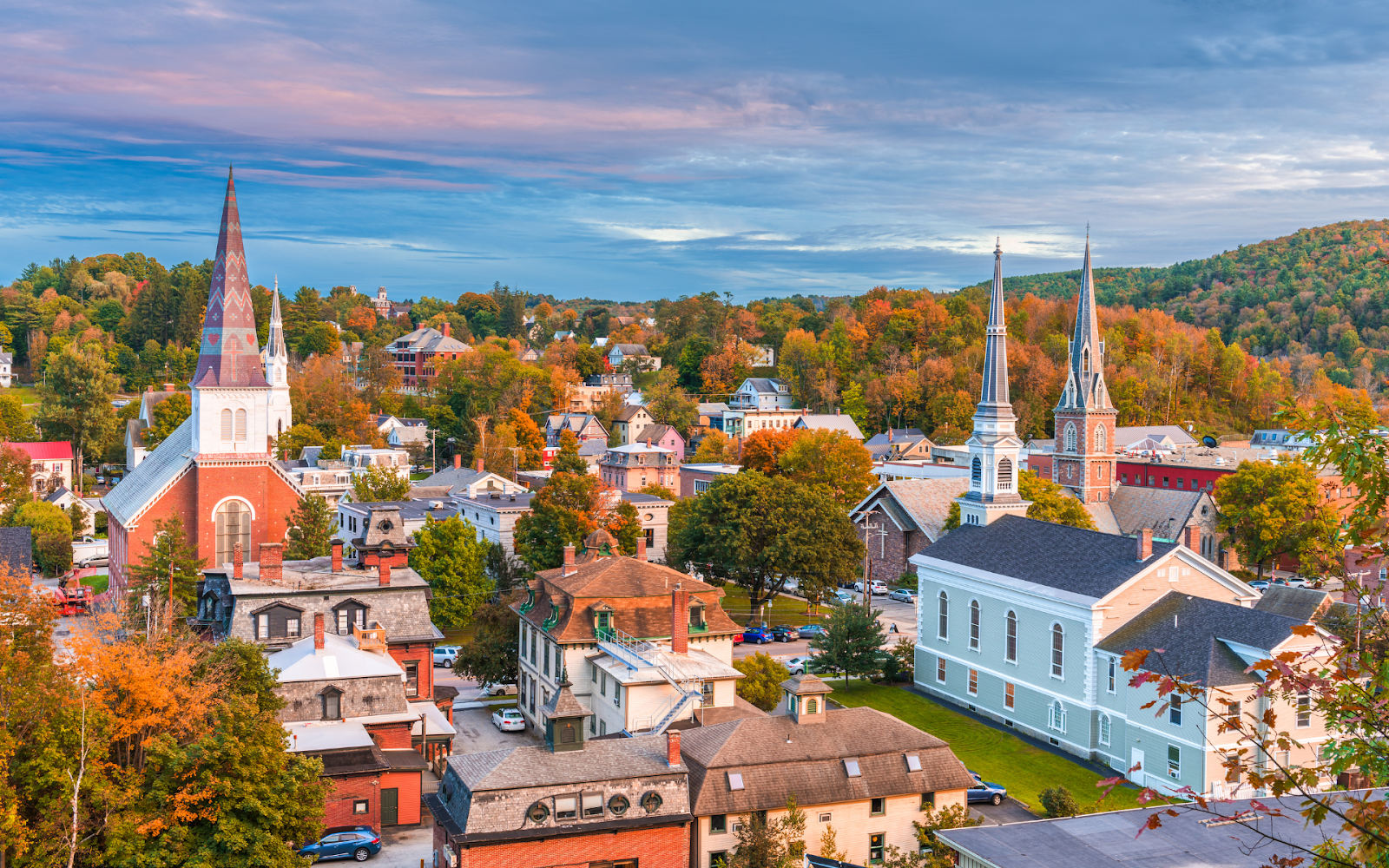
Key Takeaways:
- Legal Distinctions: Vermont distinguishes clearly between medical and recreational THC use, providing specific legal frameworks for each to ensure safety and compliance.
- Penalties and Regulations: Penalties for THC possession in Vermont are tiered based on the severity of the violation, from civil fines to potential jail time for more serious offenses.
- Future Legislative Changes: Vermont is likely to see future legislative changes that could expand THC regulation, increase safety measures, and adjust economic impacts through taxation.
Here at Soul, we take great pride in our commitment to ensuring the highest standards of legal compliance. We know how important it is for our customers in Vermont to have access to safe, high-quality wellness products, which is why we rigorously verify that all our products maintain THC levels in line with state and federal guidelines. By upholding these strict standards, we are confident that we are leading the way in the wellness industry, and delivering products that our customers can trust and rely on.
In this article, we explore the current regulations surrounding Tetrahydrocannabinol (THC) in Vermont. As the psychoactive component of cannabis, THC's legality has been a subject of significant debate and legislation. This discussion will provide insights into the differences between medical and recreational use, the specific statutes that regulate THC, the penalties associated with its possession, and the impact of federal laws on state regulations. Additionally, we will look at legal alternatives to THC available in Vermont and speculate on future legislative trends.
Understanding The Difference Between Medical And Recreational Use
In Vermont, there is a notable difference in the legal framework between medical and recreational use of THC. Medical use of cannabis was legalized earlier, which means that individuals who have certain qualifying conditions have the legal right to use marijuana for therapeutic purposes. To qualify, patients must be certified by a registered physician and obtain a medical marijuana card, which will allow them to purchase cannabis from licensed dispensaries.
On the other hand, recreational use of marijuana was legalized more recently. Adults aged 21 and over are permitted to possess and consume marijuana. However, there are regulations regarding how much can be possessed at one time and where it can be consumed. Recreational users do not need a medical card but must adhere to strict guidelines about public consumption and possession limits.
Current Laws Governing THC In Vermont
Possession Limits
In Vermont, adults aged 21 and over are allowed to possess up to one ounce of marijuana or 5 grams of hashish. This limit is strictly enforced to prevent the illegal distribution and consumption of marijuana.
Cultivation
Residents are permitted to cultivate marijuana for personal use, with specific limits to control production. An individual can grow up to two mature marijuana plants and four immature plants at a time. These plants must be cultivated in a secure place not openly visible from public areas, ensuring privacy and reducing the risk of theft or misuse.
Consumption Areas
Public consumption of marijuana is illegal in Vermont, similar to alcohol laws. It is also prohibited to use marijuana in a vehicle, on school grounds, or any place where tobacco smoking is banned. This regulation helps maintain public decorum and ensures that non-users are not exposed to smoke or vapor from marijuana use.
Dispensaries
For medical marijuana users, Vermont maintains a system of state-licensed dispensaries. These facilities are regulated to ensure they provide quality, safe products to registered patients. Dispensaries also play a crucial role in preventing the diversion of medical cannabis for recreational purposes.
Driving Under Influence
Driving while under the influence of THC is illegal and considered a serious offense in Vermont. The state has implemented stringent laws to deter impaired driving and maintain road safety. Offenders are subject to significant penalties, including fines, license suspension, and even imprisonment, depending on the severity of the infraction.
Penalties For THC Possession In Vermont
Minor Possession Violations
When individuals are found with slightly more than the legal possession limit but less than two ounces, the situation is generally handled as a civil violation rather than a criminal offense. Offenders may face fines typically around $200, without the burden of a criminal record.
Excessive Possession
Possession of large amounts, especially those suggesting intent to distribute, like possessing several ounces beyond the personal limit, escalates to more serious charges. These cases may be treated as misdemeanors or felonies, depending on the quantity and the offender's history. Penalties can include fines of thousands of dollars, possible imprisonment for up to two years, and a permanent criminal record.
Repeat Offenses
Individuals who repeatedly violate cannabis possession laws face progressively harsher penalties. The legal system may impose stricter fines, longer jail terms, and more stringent probation terms on repeat offenders to deter ongoing non-compliance.
Possession In Prohibited Areas
Possessing THC on federal property, such as national parks, or other areas where cannabis use remains illegal, including near schools or on school buses, can lead to additional state and federal penalties. These might include higher fines and increased jail time, particularly under federal law, which still classifies marijuana as a controlled substance
Impact Of Federal Laws On Vermont's THC Regulations
Federal Illegality Of Marijuana
Despite Vermont's legalization of medical and recreational marijuana, cannabis remains classified as a Schedule I controlled substance at the federal level. This classification puts it in the same category as heroin and LSD, which are considered to have no accepted medical use and a high potential for abuse. This federal stance leads to significant challenges, such as issues with banking and financing for cannabis businesses, as federally insured banks often refuse to service these enterprises due to the ongoing federal prohibition.
Impact On Law Enforcement
Federal law enforcement agencies, such as the DEA, retain the authority to enforce federal marijuana laws in Vermont. This creates a precarious situation for local law enforcement, who are sworn to uphold state law that directly contradicts federal law. Local officers must navigate these conflicting regulations, often focusing on state-level priorities unless directed otherwise by specific federal interventions.
Implications For Medical Users
Federal restrictions pose significant hurdles for users of medical marijuana in Vermont. For example, users can face federal penalties for possessing firearms, as the ATF's form for firearm purchase explicitly asks about marijuana use, which is still federally illegal. Additionally, medical marijuana patients may find it challenging to access their medication on federal properties such as Veterans Affairs facilities, which do not permit any form of cannabis use or possession.
Research And Funding
The federal classification of marijuana as a Schedule I drug also stifles research by imposing stringent controls and bureaucratic hurdles that researchers must navigate. This limits academic and pharmaceutical research into the benefits and risks of cannabis, constraining advancements in medical treatments and scientific understanding. Federal funding for research involving cannabis is also minimal, complicating efforts to study its effects comprehensively.
Interstate Travel And Commerce
Although Vermont has legalized marijuana, federal law prohibits the transportation of cannabis across state lines, even to and from other states where it is legal. This federal oversight affects residents who might travel with marijuana, subjecting them to potential legal risks if they cross state borders with THC products. This restriction hampers the development of regional markets and complicates logistics for cannabis businesses operating in multiple states.
Legal Alternatives To THC In Vermont
In Vermont, as in many other states, consumers looking for the benefits of cannabis have several legal alternatives available. These alternatives offer various benefits and are subject to different regulations. Here’s a detailed look at these options:
- CBD Products: Cannabidiol (CBD) is a popular non-psychoactive compound found in cannabis and hemp plants. Unlike THC, CBD does not produce a high, but it is often used for its potential health benefits, including pain relief, anxiety reduction, and inflammation reduction. Vermont law allows the sale and use of CBD products derived from hemp with less than 0.3% THC content. These products range from oils and tinctures to edibles and topical creams, providing a wide array of options for consumers.
- Delta-8 THC: Delta-8 THC is a cannabinoid that is chemically different from Delta-9 THC (the primary psychoactive component in cannabis). Delta-8 THC has a lower psychotropic potency but offers many of the same benefits as THC, such as pain relief and nausea reduction. It exists in a legal gray area, as it is typically synthesized from CBD in hemp, which is legal. However, consumers should be aware that regulatory attitudes towards Delta-8 THC can vary and may change.
- Kratom: Kratom is a plant native to Southeast Asia that has gained popularity in the U.S. for its pain-relieving and mild stimulant effects. While not a cannabis product, kratom acts on opioid receptors in the brain, making it a controversial yet legal alternative under Vermont law. Kratom is available in several forms, including powders, capsules, and teas.
- Synthetic Cannabinoids: These are chemically manufactured substances designed to mimic the effects of THC. While some synthetic cannabinoids are legal, they are not recommended due to significant safety concerns and unpredictable effects. Vermont, like many other states, has seen legal battles and health emergencies related to these products, leading to stricter regulations.
Future Outlook On THC Legislation In Vermont
Expansion Of Legal Framework
As societal acceptance grows, Vermont might further liberalize its cannabis policies. Future legislative efforts could involve increasing possession limits to accommodate personal use more generously, broadening the scope of licenses available for new dispensaries, and potentially legalizing cannabis consumption spaces like lounges or cafes. Such developments would cater to consumer demand and aim to bring underground activities into a regulated environment, enhancing safety and increasing state oversight.
Increased Regulation And Safety Measures
With the cannabis industry expanding, Vermont is expected to implement more comprehensive regulations focusing on consumer safety. Anticipated measures could include the adoption of stringent quality control standards to verify the purity and potency of THC products, introducing more detailed labeling that informs consumers about the contents and dosage of products, and sophisticated track-and-trace systems that monitor cannabis from cultivation to sale.
Economic Impact And Taxation
The legalization of cannabis has already shown significant economic benefits in terms of tax revenue in other states, and Vermont could seek to optimize these gains. Adjustments in cannabis taxation could be designed to bolster state revenue further while funding critical public services such as education, healthcare, and addiction recovery programs. Balancing taxation to avoid driving consumers back to the illicit market will be crucial for maximizing these benefits.
Federal Legalization Impact
The potential federal legalization of cannabis could remove many of the current barriers faced by Vermont's cannabis industry. This would include easing banking and financing issues, simplifying interstate commerce, and aligning state and federal laws. Federal legalization could also open up new markets for Vermont producers and allow for more extensive, federally funded research into cannabis effects and benefits.
Medical Cannabis Advancements
Continued research and growing public health insights are likely to influence Vermont’s medical cannabis program. There could be an expansion in the list of qualifying medical conditions, adjustments to the quantities of cannabis that can be possessed for medical purposes, and improved accessibility through insurance coverage or state-supported programs.
Final Thoughts
As Vermont strives to keep up with the ever-changing laws and regulations regarding THC, it's crucial for both residents and stakeholders to stay informed about the latest updates. The state has made considerable progress in distinguishing between medical and recreational use, and has established a regulatory structure that prioritizes safety and compliance while also considering the needs and rights of its citizens.
Looking ahead, Vermonters can expect further developments in THC legislation that may expand legal uses, enhance regulatory measures, and potentially open up new economic opportunities through adjustments in taxation and business licensing. With the possibility of federal legalization on the horizon, the alignment of state and federal laws could significantly ease current constraints, fostering a more robust and integrated cannabis industry.
For those engaged in or affected by the THC market, staying updated with the latest legal changes, understanding the implications of these laws, and participating in the ongoing dialogue around cannabis legislation will be crucial. Engaging with community discussions, following updates from reliable sources, and consulting with legal experts can provide valuable insights and guidance in this dynamic field.
Read also:
Frequently Asked Questions About THC Legality In Vermont
Can tourists buy weed in Vermont?
Yes, tourists who are 21 years or older can legally purchase weed in Vermont at licensed dispensaries.
Are there any restrictions on where you can smoke weed in Vermont?
Yes, smoking weed is prohibited in public places, within a vehicle, and on any federal property. It is primarily allowed on private property.
Can you get fired for using weed in Vermont?
Yes, employers in Vermont can maintain a drug-free workplace policy, and employees can be disciplined or terminated for marijuana use, especially if it affects job performance or safety.
Does Vermont have dispensaries?
Yes, Vermont has state-licensed dispensaries that sell marijuana to registered medical patients and adult recreational users.
Is weed delivery legal in Vermont?
As of now, Vermont does not allow the delivery of recreational marijuana. However, there are provisions for the delivery of medical cannabis to registered patients.
Can landlords ban the use of weed on their property in Vermont?
Yes, landlords can prohibit the use of marijuana on their property through lease agreements, especially smoking, due to the smell and potential damage.
Are weed-infused edibles legal in Vermont?
Yes, marijuana-infused edibles are legal for both medical and recreational use in Vermont, but they must be purchased from a licensed dispensary.
Is CBD oil legal in Vermont?
Yes, CBD oil is legal in Vermont. It can be sold and consumed legally as long as it is derived from hemp and contains less than 0.3% THC.
Sources:
- Hansen, C., Alas, H., & Davis Jr., E. (2021, June 30). Where Is Marijuana Legal? A Guide to Hemp Legalization. US News & World Report. https://www.usnews.com/news/best-states/articles/where-is-Marijuana-legal-a-guide-to-Hemp-legalization
- Inc, G. (2021, November 4). Support for Legal Marijuana Holds at Record High of 68%. Gallup.com. https://news.gallup.com/poll/356939/support-legal-Marijuana-holds-record-high.aspx
- Dorbian, I. (n.d.). Despite Some Stumbles, Total Sales In U.S. Cannabis Market Could Soar To $50.7 Billion By 2028, Says Top Researcher. Forbes. Retrieved October 18, 2023, from https://www.forbes.com/sites/irisdorbian/2023/02/15/despite-some-stumbles-total-sales-in-us-cannabis-market-could-soar-to-507-billion-by-2028-says-top-researcher/?sh=1f90e293164d
- Washington DC Hemp Laws | WashingtonDCCannabis.org. (n.d.). Washington D.C. Cannabis Information Portal. https://washingtondccannabis.org/laws






